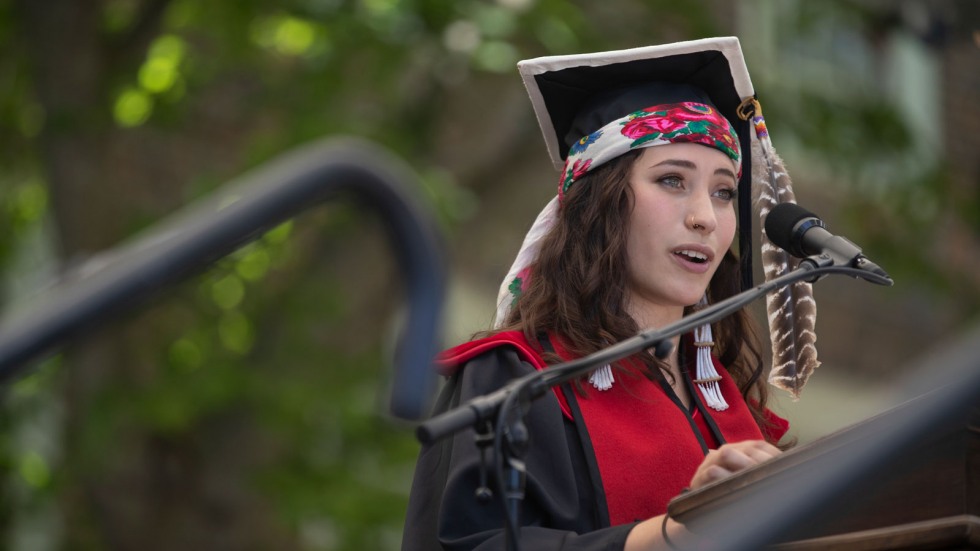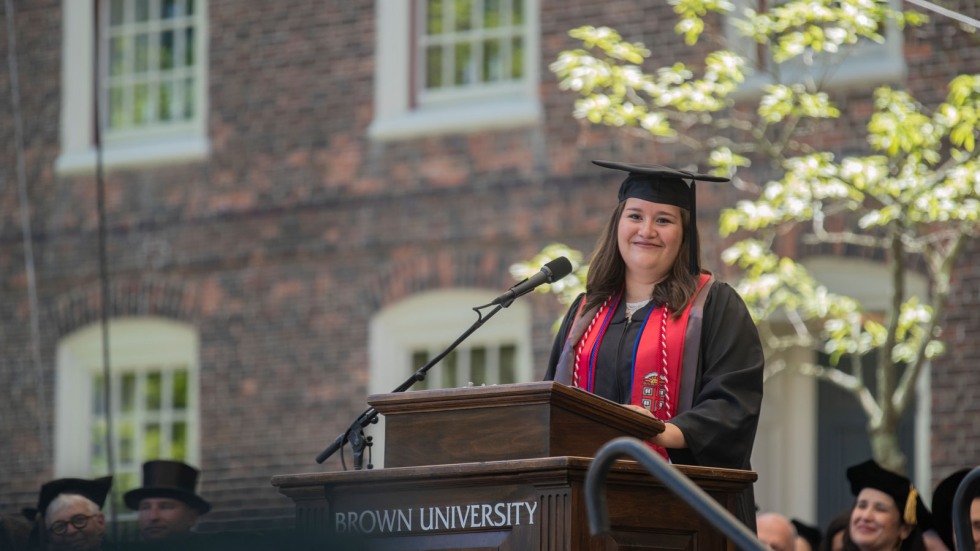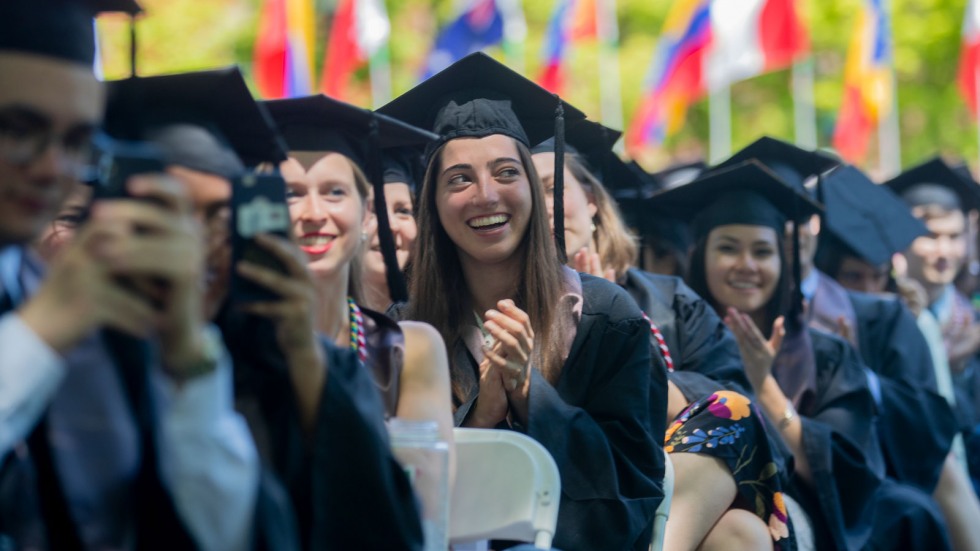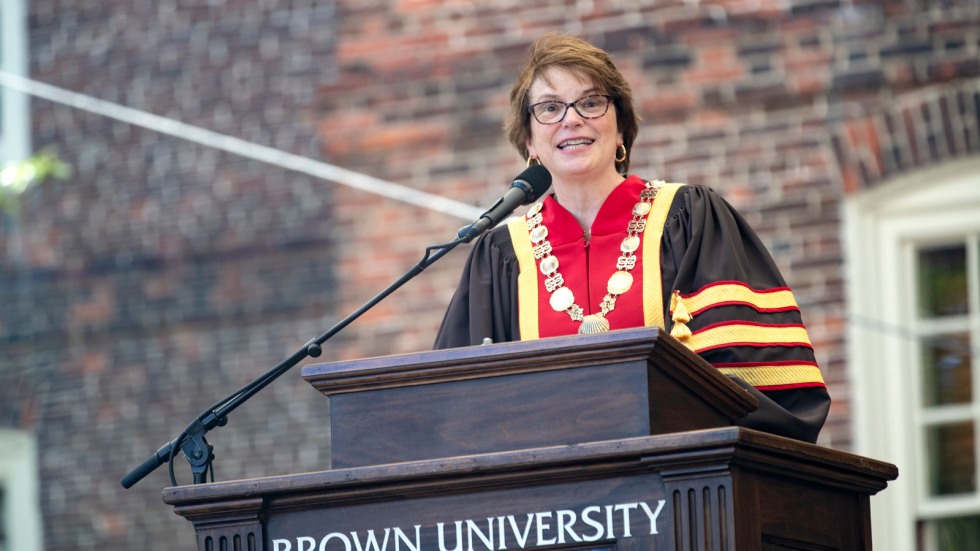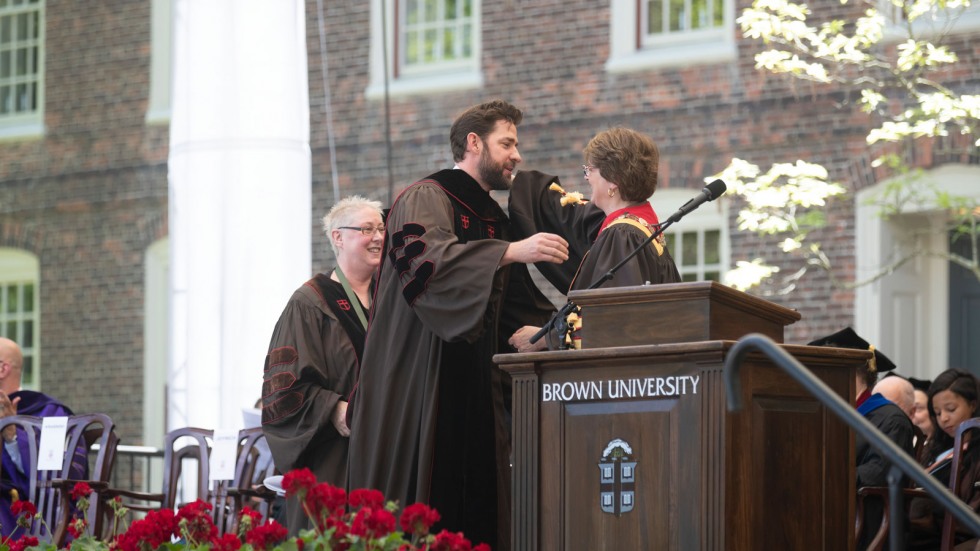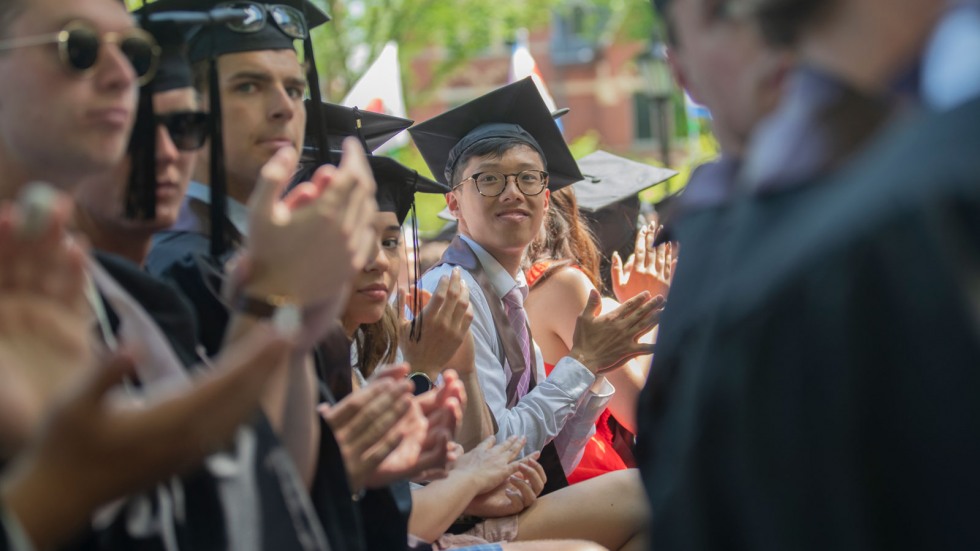She recalled how her mother would offer soothing words when childhood fears kept Miller awake at night. “You come from a long line of strong, powerful and resilient indigenous women,” said Miller, recalling her mother’s words. “They were Warrior Women. I am a Warrior Woman. And you, Ruth, are a Warrior Woman.”
At Brown, where she concentrated in development studies, Miller says she harnessed that warrior spirit to fight back against injustices she saw on campus and beyond. She drew strength from joining indigenous peoples worldwide at Standing Rock to peacefully demonstrate in opposition to the Dakota Access Pipeline, a gathering that included 11 Brown students.
“We stood against the environmental and cultural threat of the Dakota Access Pipeline,” Miller said. “We celebrated a commitment to the Earth and to justice through peaceful gathering using the weapons of community, care and deep love.”
Powerful as that experience was, Miller’s frustration and rage over injustice soon left her feeling “burnt out, running on fumes,” she said. “I was trying to destroy so much, that I was letting myself be destroyed.”
But over time, her conception of what it means to be a warrior changed.
“Now I am leaving Brown with a new idea of how to be a Warrior: I will fight with compassion,” she said. “I will stop thinking of destruction, and instead towards reimagining and rebuilding. Generating seeds of change and helping them grow, instead of just battling the weeds.”
She urged her fellow graduates, as they depart College Hill, to deal compassionately with their communities, in their relationships with others and with themselves.
“Class of 2019, I urge you to share yourselves with this world,” Miller said. “Our most precious asset, our most coveted strength, will always be our empathy. Choosing compassion is not choosing passivity. It is using the strength of our love to overcome hate. Find the potential that comes with kindness, loving and a resilient spirit that cannot be dissuaded by adversity.”
In an address titled, “On Crossing Borders,” Patricia Rodarte reflected on her experience growing up in El Paso, Texas, which has important and enriching ties with its sister city across the U.S. / Mexico border, Ciudad Juarez. Rodarte, who will soon head to medical school as part of Brown’s Program in Liberal Medical Education, said the borderland is where she learned the values of hard work, community-building and collaboration. That learning started with her parents.

